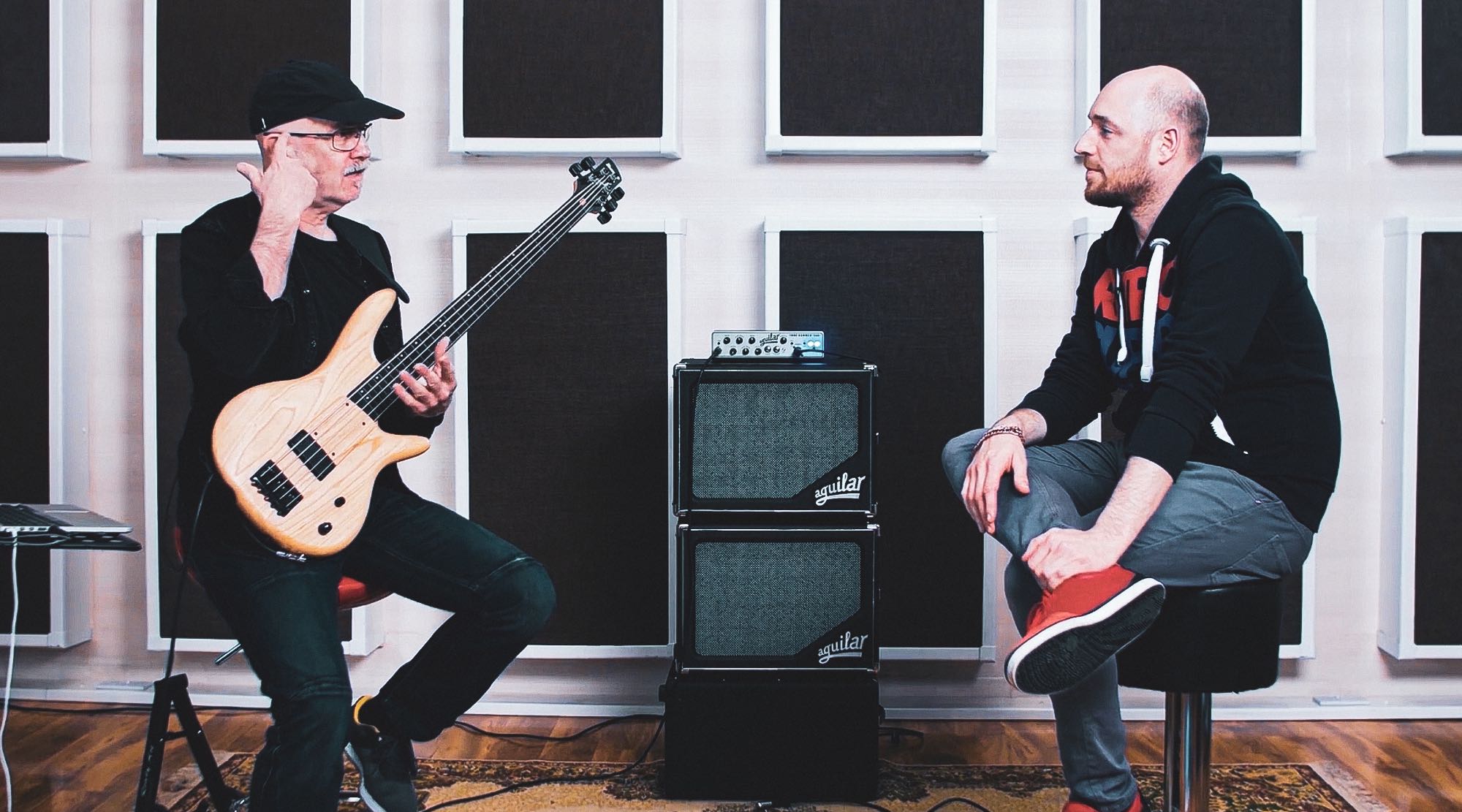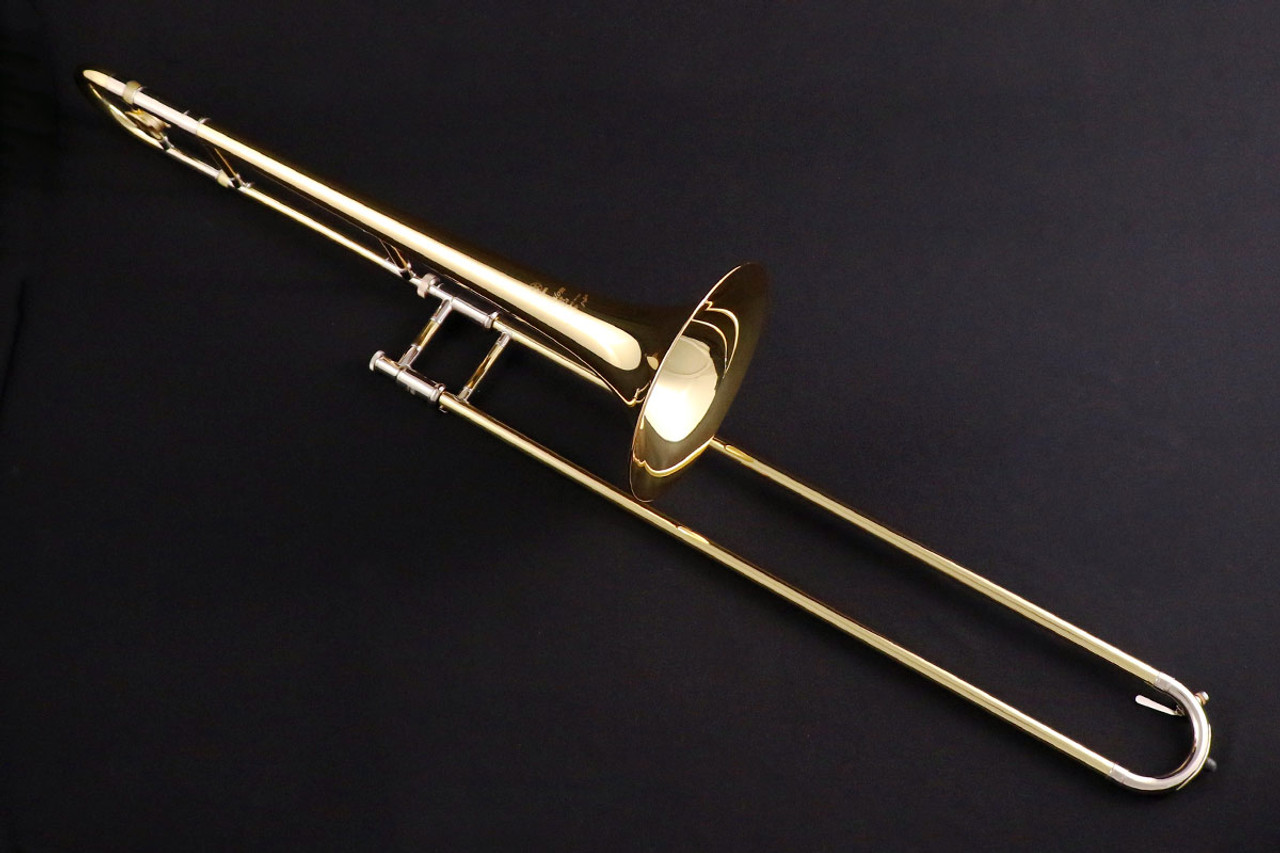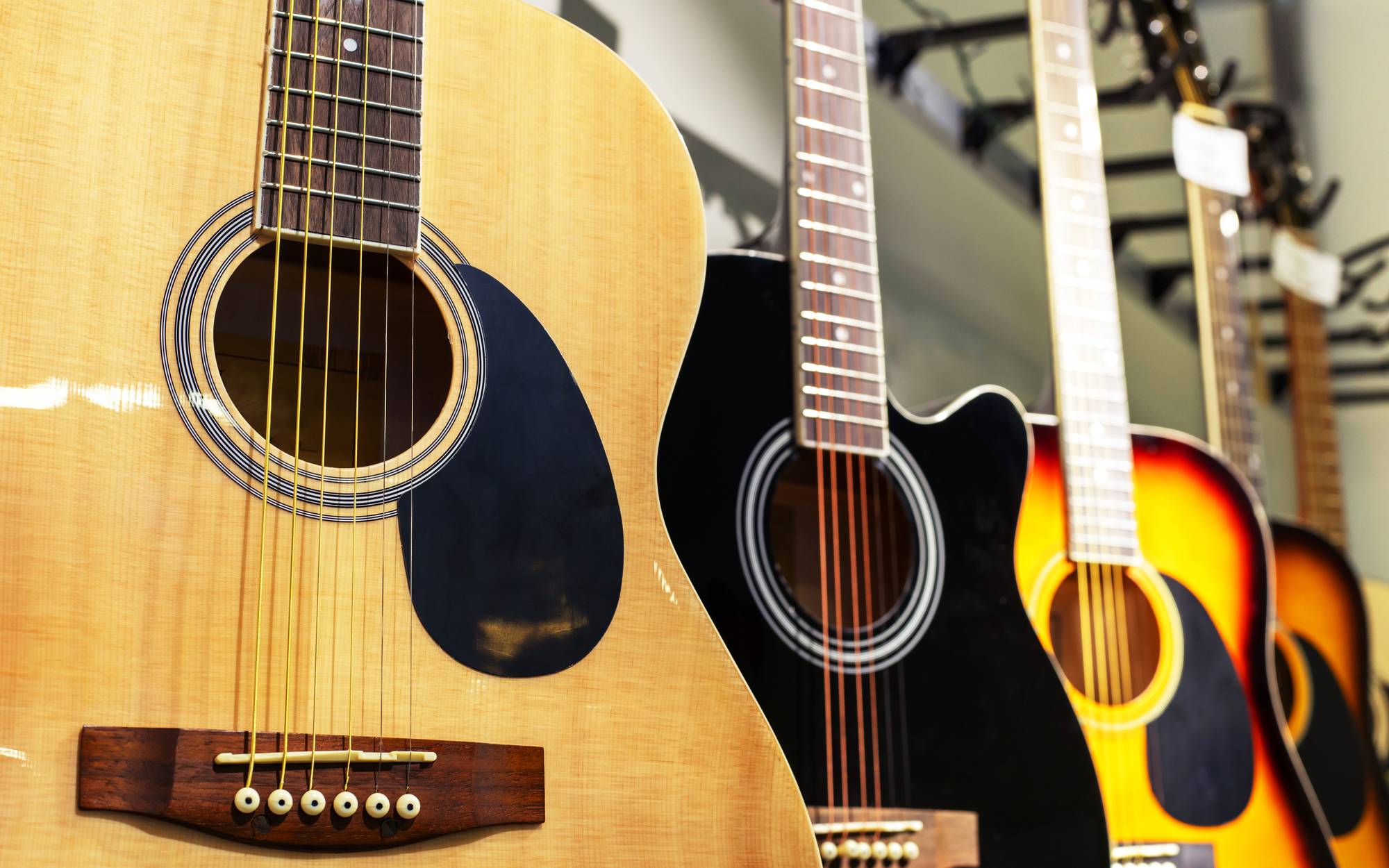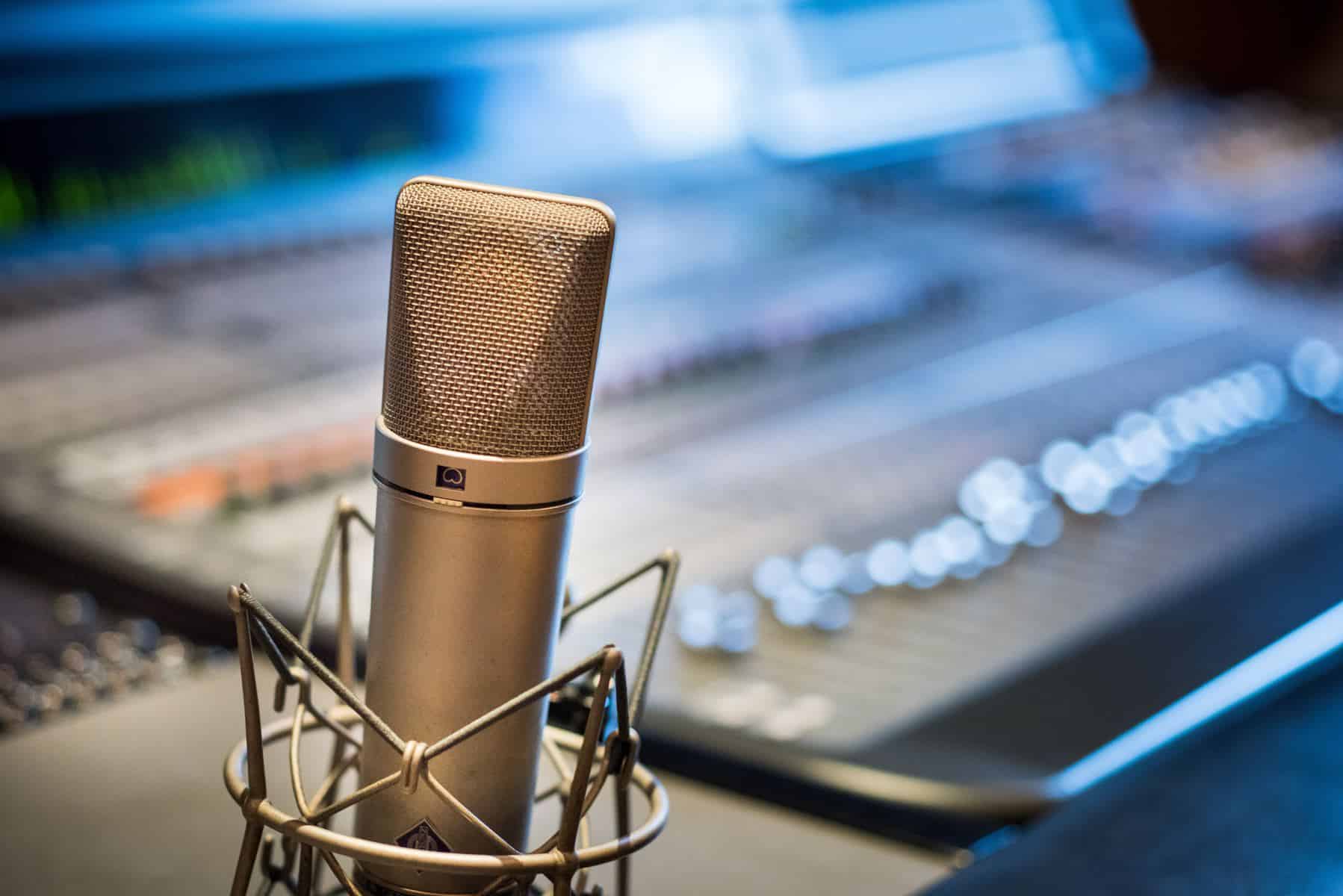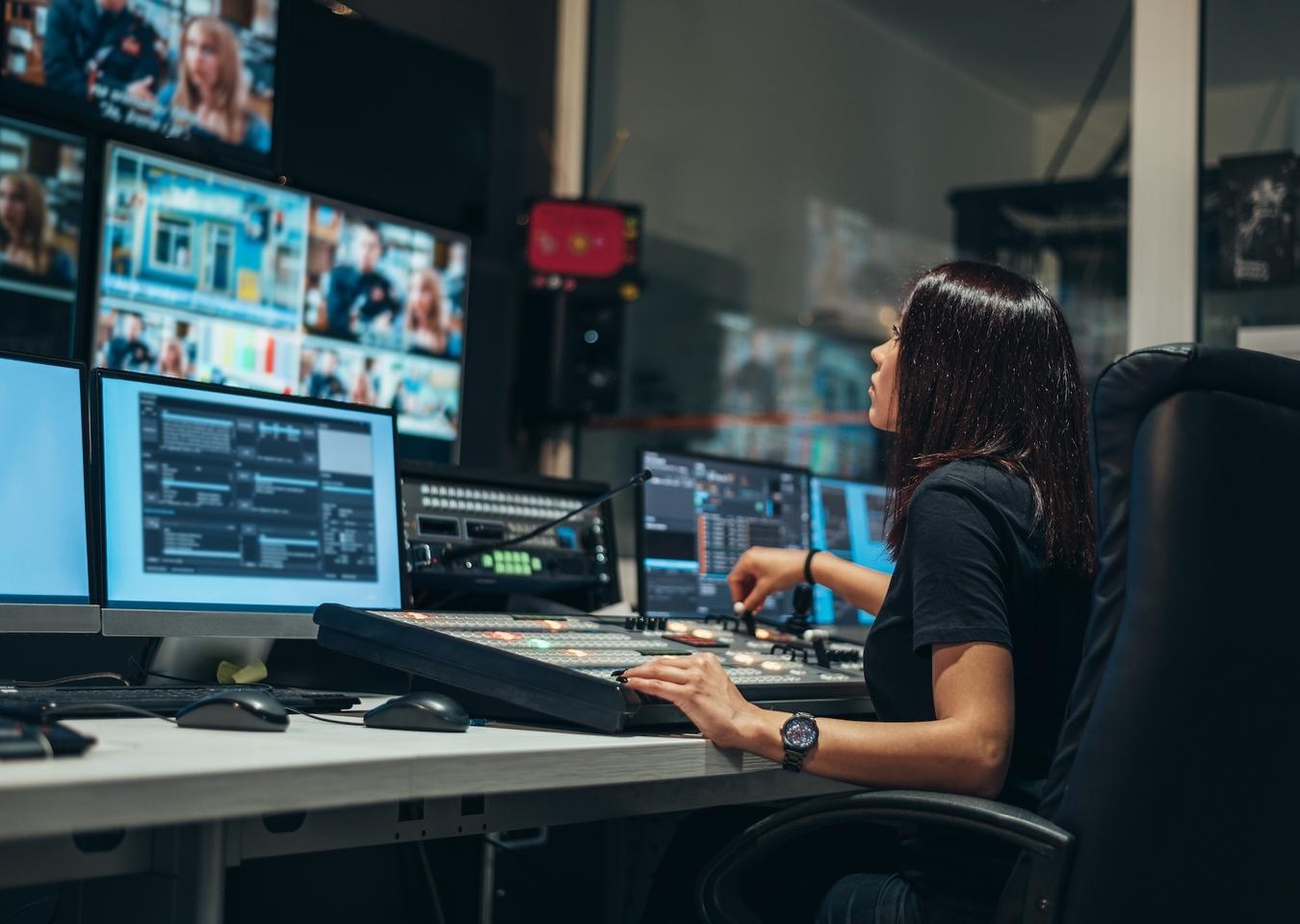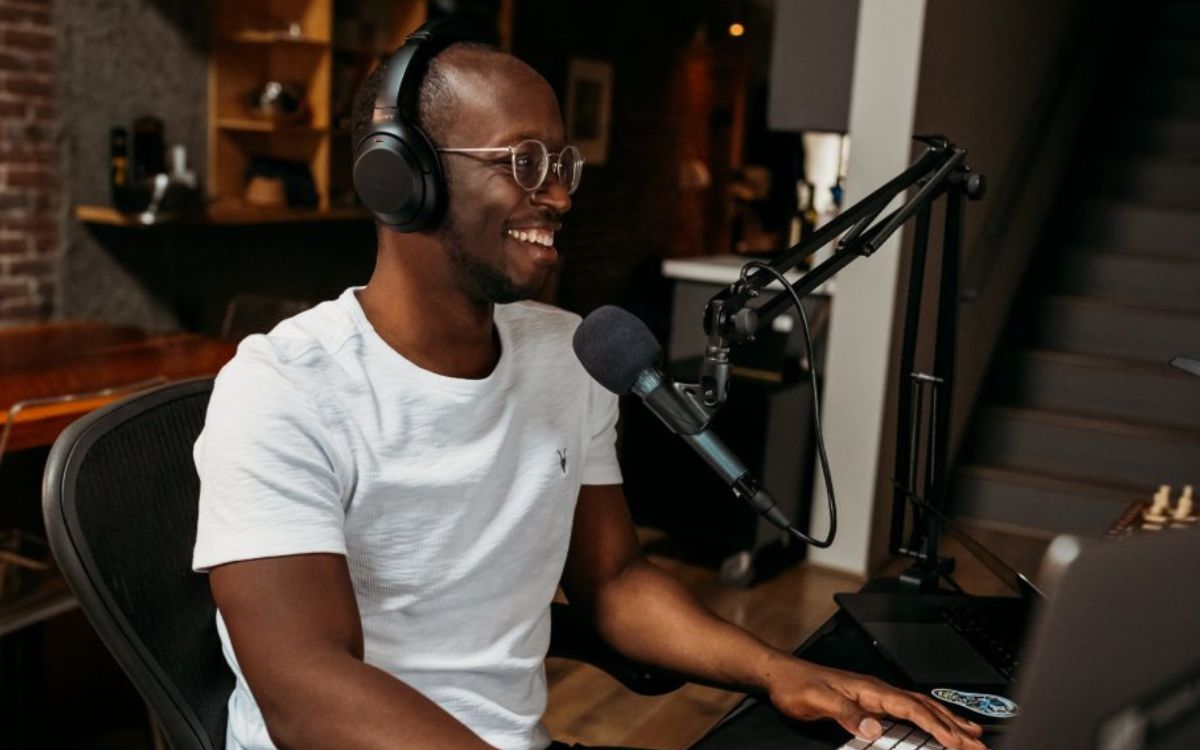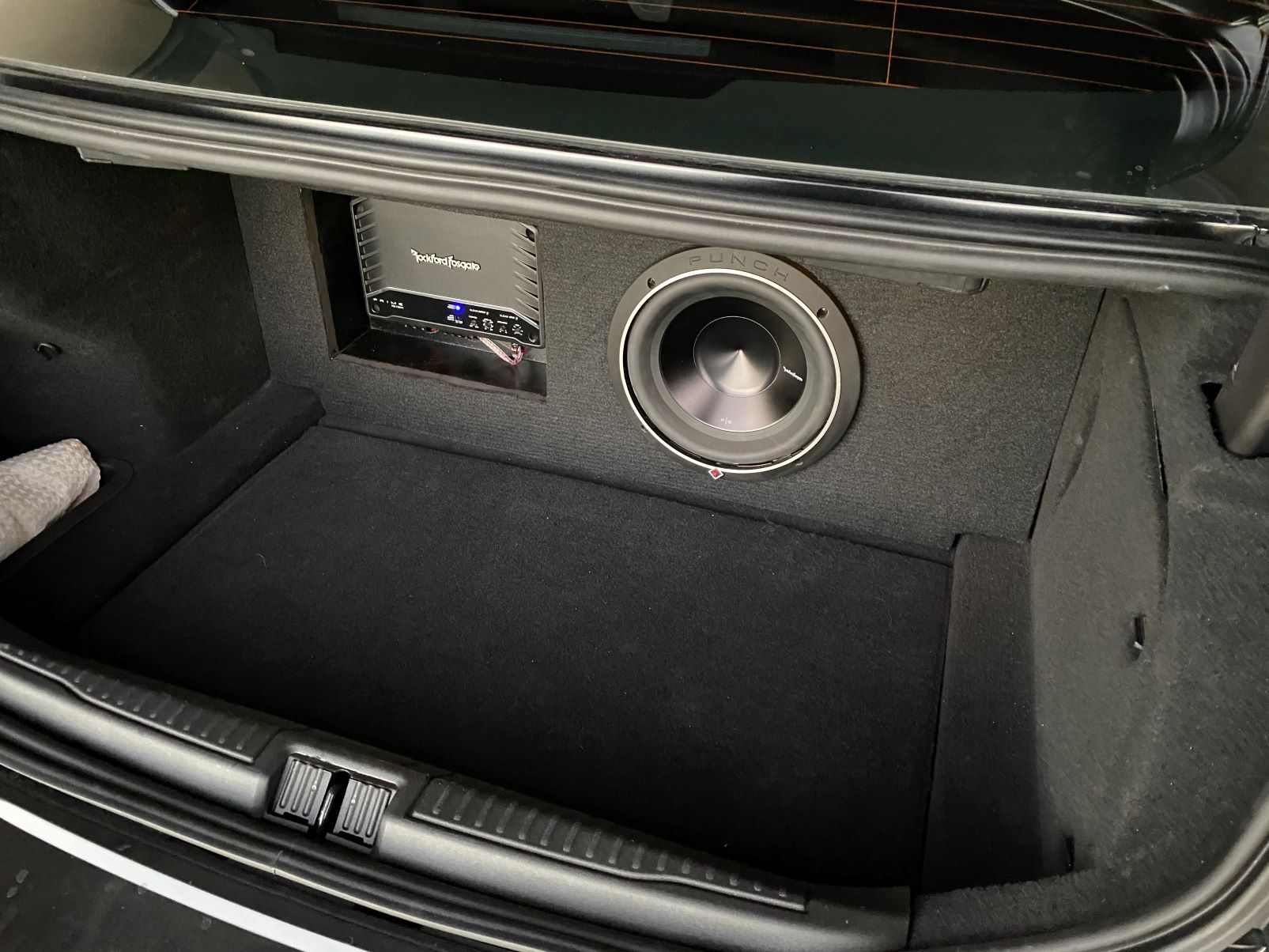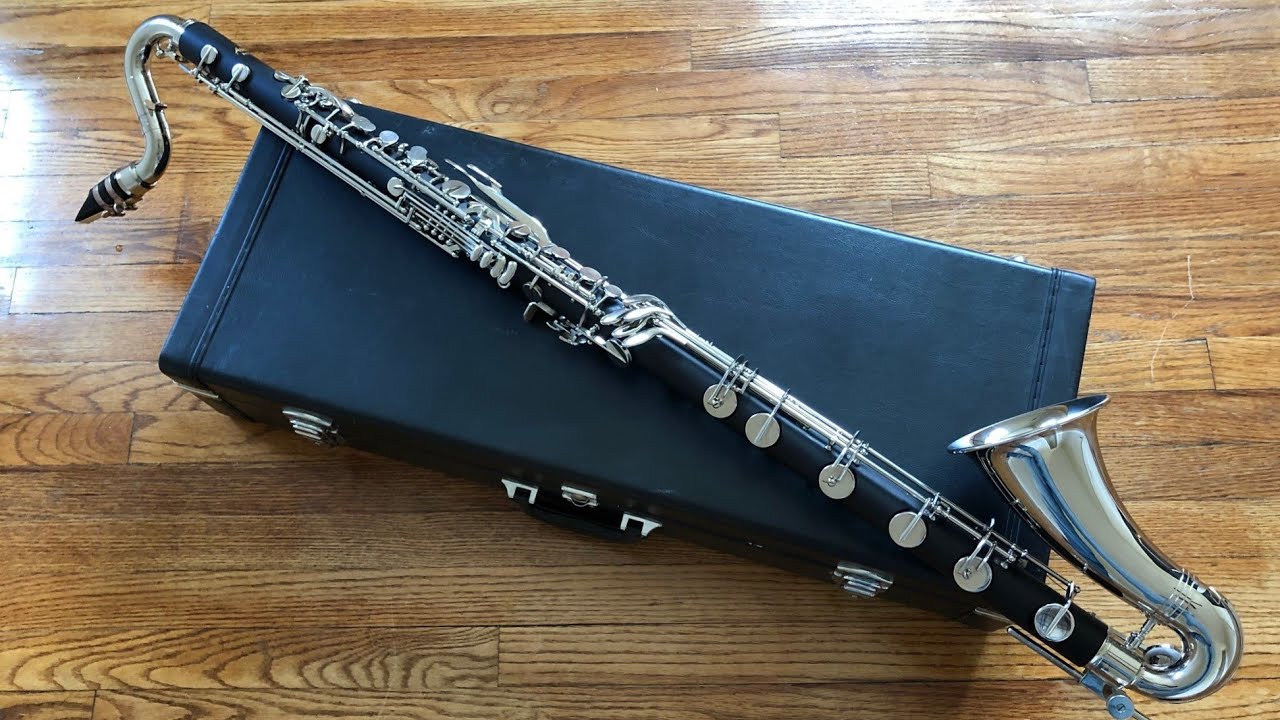Home>Events & Info>Podcast>How Much Does A Podcast Cost
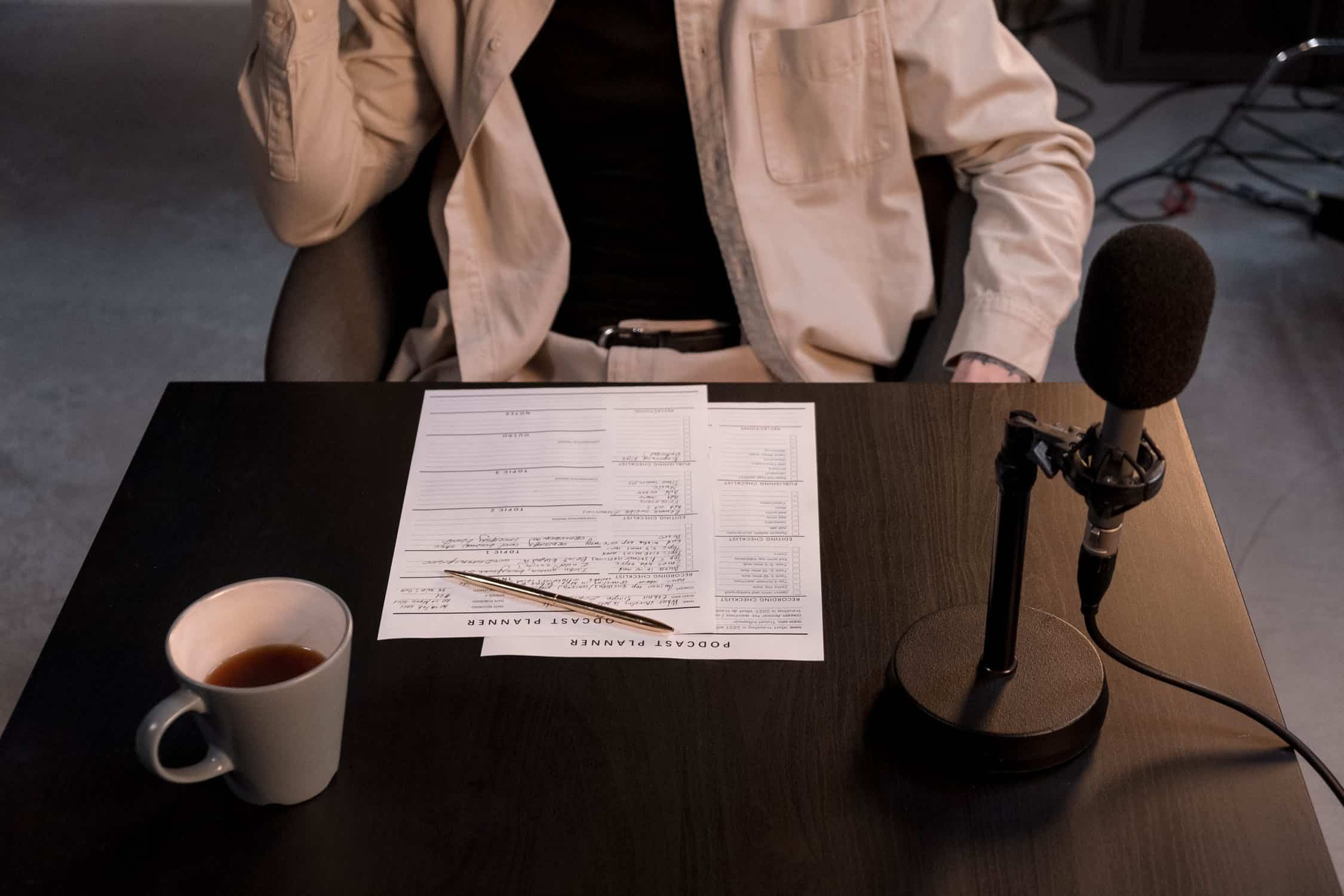

Podcast
How Much Does A Podcast Cost
Modified: February 17, 2024
Find out the cost of starting a podcast and the expenses involved. Discover how much you need to budget for equipment, hosting, and production.
(Many of the links in this article redirect to a specific reviewed product. Your purchase of these products through affiliate links helps to generate commission for AudioLover.com, at no extra cost. Learn more)
Table of Contents
Introduction
Podcasting has become an increasingly popular form of content creation and consumption, allowing individuals and businesses to connect with their audiences through audio storytelling. Whether you’re a seasoned podcast host or considering starting your own show, it’s important to understand the various costs associated with podcasting.
Before diving into the specifics, it’s worth noting that podcasting costs can vary significantly depending on factors such as production quality, length of episodes, and the level of professional assistance required. While some podcasters may opt for a DIY approach and incur minimal expenses, others may invest in professional services to ensure a polished and engaging listening experience.
In this article, we’ll explore the different cost components of podcasting, including equipment costs, hosting fees, production expenses, music and sound effects licensing, editing fees, marketing and promotion costs, and additional expenses you should consider when budgeting for your podcast.
Understanding the costs involved in podcasting upfront can help you plan your budget more effectively and avoid any financial surprises along the way. With that in mind, let’s dive into the various aspects that contribute to the overall cost of running a podcast.
Equipment Costs
When it comes to podcasting, having the right equipment can make a significant difference in the quality of your audio. While it’s possible to start with basic equipment, investing in higher-quality gear can greatly enhance the listening experience and attract a larger audience. Let’s take a look at some essential podcasting equipment and their associated costs:
- Microphone: A good quality microphone is a crucial investment for podcasters. Entry-level USB microphones, such as the Blue Yeti or Audio-Technica ATR2100x, can cost around $100. If you’re looking for professional-grade XLR microphones, popular options include the Shure SM7B or Rode PodMic, which can range from $300 to $500.
- Headphones: A reliable pair of headphones is essential for monitoring audio quality during recording and editing. Decent podcasting headphones can range from $50 to $200, depending on the brand and features.
- Boom Arm and Shock Mount: These accessories can help improve microphone positioning and reduce unwanted noise. A good quality boom arm and shock mount can cost around $50 to $100.
- Audio Interface: If you’re using an XLR microphone, you’ll need an audio interface to connect it to your computer. Entry-level audio interfaces, like the Focusrite Scarlett 2i2, start at around $150.
- Pop Filter: A pop filter helps minimize plosive sounds during recording. Depending on the quality and brand, a pop filter can cost between $10 and $30.
- Acoustic Treatment: To achieve optimal sound quality, acoustic treatment can be beneficial. This can include foam panels, bass traps, and diffusers, which can range from $100 to $500 depending on the size of your recording space.
Keep in mind that these are estimated costs, and you can find equipment options at different price ranges based on your specific needs. Additionally, it’s important to consider other miscellaneous items such as microphone cables, a sturdy microphone stand, and a reliable computer for recording and editing.
Investing in quality equipment upfront can contribute to a professional-sounding podcast, but it’s also important to find a balance between your budget and your desired production value. Remember, it’s always possible to upgrade your equipment as your podcast grows and generates revenue.
Hosting Costs
Once you’ve recorded and edited your podcast episodes, you need a reliable hosting platform to store and distribute your content to various podcast directories. Hosting services provide the infrastructure and bandwidth necessary to deliver your episodes to listeners across the globe. Here are some factors to consider when it comes to hosting costs:
- Free Hosting: Some hosting platforms offer free plans that come with limited storage space and bandwidth. While this option may be suitable for hobbyist podcasters or those with a small audience, free plans often come with ads and may not provide the same reliability and customer support as paid hosting options.
- Shared Hosting: Shared hosting plans are offered by many podcast hosting platforms with pricing structures based on storage, bandwidth, and the number of episodes or shows you have. Shared hosting plans can range from $5 to $20 per month, depending on the features included.
- Managed Hosting: For podcasters with higher demands and larger audiences, managed hosting provides additional resources and dedicated support. These plans typically come with more storage, bandwidth, and advanced analytics and can range from $20 to $100 or more per month.
- Website Hosting: If you plan to have a website for your podcast, you’ll need to consider the cost of web hosting as well. Website hosting prices can vary depending on the hosting provider and the features included, starting at around $5 per month.
When choosing a hosting platform, it’s important to assess the specific needs of your podcast. Consider factors like storage space, bandwidth, analytics, customer support, and the platform’s reputation in the podcasting community. Some popular podcast hosting platforms include Libsyn, Podbean, Buzzsprout, and Blubrry.
It’s worth noting that hosting costs can increase as your podcast grows in terms of episode count and listener base. It’s essential to regularly assess and adjust your hosting plan to accommodate your podcast’s growth without incurring additional expenses unnecessarily.
Overall, hosting costs are a necessary expense for podcasters, but with the variety of options available, it’s possible to find a hosting plan that fits your budget and provides the necessary features for a seamless podcasting experience.
Production Costs
Producing a podcast involves more than just recording the audio. It often includes various tasks and expenses to ensure a polished and engaging final product. Let’s explore the different production costs that podcasters may encounter:
- Show Format Development: Crafting a compelling show format may require brainstorming sessions, research, and planning discussions. While these costs may not be monetary, they still require time and effort.
- Scriptwriting: Depending on the nature of your podcast, you may need to write scripts for your episodes. This can include detailed outlines or fully scripted dialogue.
- Guest Coordination: If your podcast features guest interviews, there may be costs associated with coordinating and scheduling these guests, especially if they require travel or remote recording setups.
- Transcription and Show Notes: Some podcasters choose to have their episodes transcribed, which can be beneficial for accessibility and SEO purposes. Transcription services typically charge per minute of audio or offer subscription-based plans. Show notes, summaries, and timestamps for each episode can also require time and effort to create.
- Graphics and Branding: Investing in professional graphics and branding elements can enhance the visual appeal of your podcast. This may include cover art, episode graphics, and social media banners.
- Remote Recording Software: If your podcast involves remote interviews or co-hosts, you may need to invest in software that allows for high-quality remote recording. Options like Zencastr or SquadCast offer both free and premium plans.
It’s important to consider your own skills and available resources when deciding whether to outsource certain production tasks or handle them in-house. While some podcasters may have the expertise to handle all production elements themselves, others may choose to hire professionals for specific tasks, such as audio editing or graphic design. These costs will vary depending on the complexity of your podcast and the level of professional assistance needed.
Remember, production costs can be adjusted based on your budget and priorities. It’s essential to strike a balance between maintaining production quality and managing your expenses to ensure a successful and sustainable podcasting journey.
Music and Sound Effects Costs
Adding music and sound effects to your podcast can greatly enhance the listener experience and create a more immersive atmosphere. However, it’s important to remember that using copyrighted music without proper licensing can result in legal issues. Here are some factors to consider regarding music and sound effects costs:
- Royalty-Free Music Libraries: Royalty-free music libraries offer a vast selection of tracks that can be used in podcasts without the need for individual licenses or royalties. Platforms like Epidemic Sound, Artlist, and PremiumBeat provide subscription-based access to high-quality music libraries, with prices starting around $10 per month.
- Music Licensing: If you have a specific song or artist in mind for your podcast, you may need to secure licensing rights. Music licensing fees can vary greatly depending on factors like the popularity of the song, the duration of usage, and the scope of your podcast. It’s advisable to research and reach out to the appropriate rights holders or licensing agencies to negotiate usage fees.
- Sound Effects: Adding sound effects to your podcast can help create a more immersive experience. There are various websites and platforms offering free or affordable sound effects libraries, such as Freesound, SoundBible, and ZapSplat. You can also consider purchasing sound effects packs from platforms like Boom Library or Pro Sound Effects.
When selecting music and sound effects for your podcast, it’s crucial to consider the tone, genre, and intended audience of your show. Some podcasters prefer to create original music or collaborate with musicians in their community, which can add a unique touch to their production but may involve additional costs for recording or licensing.
Remember to always credit the artists and composers properly in your podcast episodes and show notes, following the guidelines provided by the licensing agreements or Creative Commons licenses.
By investing in quality music and sound effects, you can elevate the overall production value of your podcast and create a more engaging and immersive listening experience for your audience.
Editing Costs
Editing is a crucial step in the podcast production process, ensuring that your episodes are well-paced, polished, and free from any technical or content-related issues. While some podcasters may choose to edit their episodes themselves, others may prefer to outsource this task to professionals. Here are some factors to consider regarding editing costs:
- Professional Audio Editing: If you have the budget and want a higher level of polish, hiring a professional audio editor can be a wise investment. Audio editing services typically charge per minute of edited content, with rates varying based on factors such as the complexity of the editing, turnaround time, and the experience of the editor. Prices can range from $20 to $100 or more per episode.
- Editing Software: If you choose to edit your episodes yourself, you may need to invest in editing software. Popular options include Adobe Audition, Audacity (free), GarageBand (free for Mac users), or Reaper. Prices range from free to a one-time payment of a few hundred dollars.
- Training and Learning Resources: If you’re new to editing, you may want to invest in training resources to improve your skills. This can include online courses, tutorials, or books specifically focused on podcast editing. Costs for training resources vary, starting from free options to paid courses ranging from $50 to a few hundred dollars.
The decision to handle editing in-house or outsource it depends on your comfort level with editing software, the complexity of your episodes, and the time you’re willing to dedicate to this task. Outsourcing editing allows you to focus on other aspects of podcast creation and ensures a professional finish, but it does come at an additional cost.
It’s important to establish clear communication with your editor, providing them with specific instructions, references, and feedback to achieve the desired result. This will help minimize revisions and potential extra costs.
Remember that editing costs can vary depending on the length and complexity of your episodes, so it’s important to budget accordingly and factor in this expense in your overall podcast production costs.
Marketing and Promotion Costs
Creating a high-quality podcast is just the first step. To reach a wider audience and grow your listener base, you’ll need to invest in marketing and promotion. While there are organic methods to promote your podcast, allocating a budget for marketing can significantly boost your visibility. Here are some marketing and promotion costs to consider:
- Podcast Advertising Platforms: There are various advertising platforms specifically designed for podcast promotion, such as AdvertiseCast, Podcorn, and Anchor Sponsorships. These platforms connect podcasters with potential advertisers or allow you to promote your show on other podcasts. Advertising costs can vary depending on the platform and the reach of the podcasts involved.
- Social Media Advertising: Platforms like Facebook, Instagram, Twitter, and LinkedIn offer targeted advertising options to promote your podcast to specific demographics. Costs for social media advertising depend on factors like the target audience, ad format, duration of the campaign, and the budget allocated.
- Website and Landing Page Design: Investing in a professionally designed website or landing page can enhance your podcast’s online presence and help convert visitors into subscribers. The cost of website design and development will vary based on the complexity and features required.
- Email Marketing Tools: Building an email list allows you to directly engage with your audience and promote your podcast. Email marketing platforms like Mailchimp, ConvertKit, and Constant Contact offer subscription-based plans with costs that scale based on your subscriber count.
- Podcast Directories and Listings: Submitting your podcast to various podcast directories and listings can increase its discoverability. While many directories are free to submit, some platforms offer premium features or highlight options that may come with a cost.
In addition to paid marketing and promotion, it’s important to utilize organic methods as well. This includes leveraging social media, engaging with your audience, collaborating with other podcasters or influencers in your niche, and actively participating in relevant online communities.
When allocating a budget for marketing and promotion, it’s crucial to have a clear understanding of your target audience, marketing goals, and available resources. It’s recommended to experiment with different marketing channels and measure their effectiveness to optimize your promotional efforts.
Remember, consistency in marketing and promotion is key to building and sustaining an audience for your podcast. A well-executed marketing strategy, combined with great content, can help your podcast gain traction and grow organically over time.
Additional Expenses
Running a podcast involves more than just the core elements of recording and production. There are several additional expenses that podcasters should consider when budgeting for their show. While these costs may vary depending on individual needs and goals, here are some common additional expenses to keep in mind:
- Professional Services: Depending on your podcast’s requirements and your own skill set, you may need to hire professionals for services such as graphic design, web development, content writing, or social media management. The costs for these services can vary greatly based on the scope and complexity of the project.
- Storage and Backup: As your podcast library expands and the number of episodes grows, you may need to invest in additional storage space for your audio files. Cloud storage services like Amazon S3, Google Cloud Storage, or Dropbox offer scalable storage options, but the costs will increase as your storage needs grow.
- Equipment Maintenance and Upgrades: Over time, equipment may require maintenance or upgrades for optimal performance. This can include replacing worn-out cables, upgrading software, or investing in newer models of microphones or other recording gear. It’s a good idea to set aside a portion of your budget for equipment maintenance and future upgrades.
- Legal and Insurance: Depending on your podcast’s content and nature, you may need legal advice to navigate topics like copyright, trademark, or libel issues. Additionally, considering insurance coverage for potential liabilities is also recommended, especially if you have guests on your show or if your podcast involves any physical activities or events.
- Live Events and Networking: If you plan to host live events, attend conferences, or engage in networking activities related to your podcast, there may be costs associated with event tickets, travel, accommodations, and promotional materials. These expenses can help you connect with your audience and expand your podcasting network.
It’s important to track and categorize all your podcast-related expenses for financial management and tax purposes. Additionally, regularly reviewing your budget and expenses will help you make informed decisions and adjust your spending as needed.
While these additional expenses may not be incurred by all podcasters, they are important to consider when planning for the long-term sustainability and growth of your podcast.

